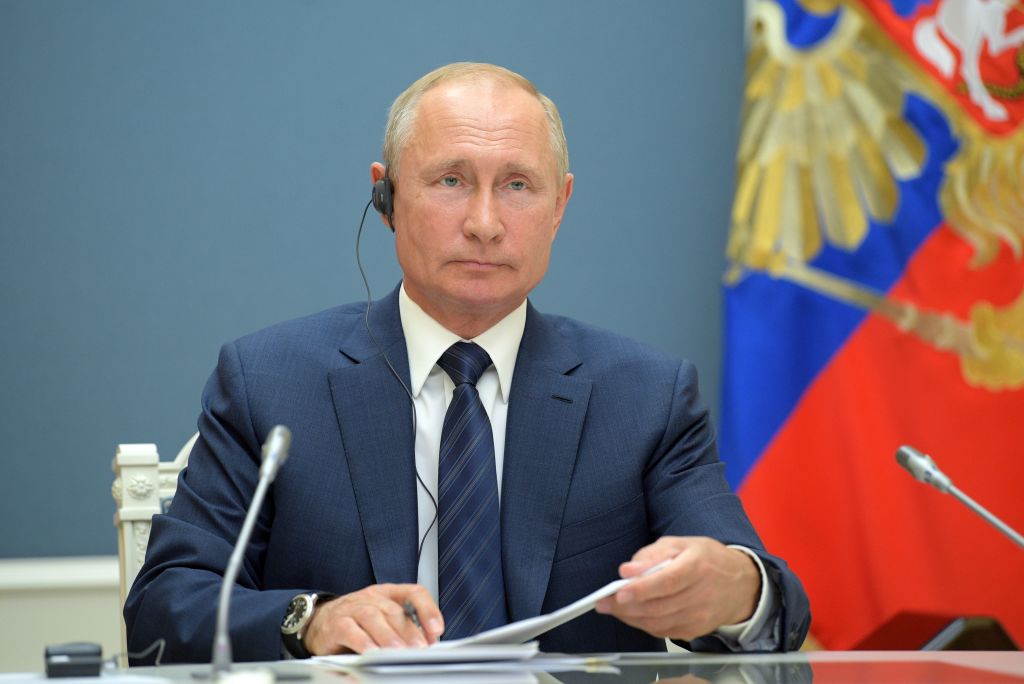With Brexit, the arrival of a new US administration, and trade deals like the Trans-Pacific Partnership, the government’s foreign policy docket for 2021 will likely be pretty full, but in the odd spare moment, perhaps when he’s walking Dilyn, Boris might want to give some thought to his Russia policy. The great virtue is, after all, that there is pretty much nowhere to go but up.
Putin’s Russia is an antagonist, and although the threat is primarily through disinformation, espionage and subversion, the first necessity is a continued firm reaffirmation of the UK’s commitment to Nato. This is, after all, not just or even mainly as a source of common military defence, but a powerful statement of solidarity.
Solidarity should be the leitmotif, fitting in nicely with the new mood-music as we make nice to ‘our European neighbours.’ The intelligence services need to be properly funded and tasked, but also redoubling collaboration with partner agencies so we can maximise our common security. (And remind people that Britain is still a heavyweight in the intelligence world, after all.)
More broadly, after the attempted murder of Sergei Skripal in 2018, Britain was able to muster a coalition of 28 other countries to expel Russian spies in response. It was a salutary rebuke and certainly raised London’s standing in Russian eyes, even as they fulminated. (That’s a point to remember: the more they complain, the more consequent it generally means we are.)
One such setback was not going to make Moscow change its ways, as we have seen from the poisoning of Alexei Navalny last year and the murder of a Chechen in Berlin in 2019. At best, it made the Russians more leery of further such ‘wet work’ in the UK.
Instead, London needs to be at the forefront in creating future ‘coalitions of the frustrated,’ when next Moscow egregiously violates the etiquette of modern statecraft. Of course, the problem is that the country in question needs to want to make such a fuss – the Germans were unhelpfully meek after the Berlin killing – but when they do want support, we should be there. It’s not just about persuading the Kremlin its actions have consequences, it’s also a chance to show positive leadership.
Meanwhile, Brexit Britain is open for business. That means letting Russians in, but obviously not indiscriminately. This will be a good test case: can we create a welcoming environment for the world’s investors, entrepreneurs and go-getters, without turning ourselves into a haven for crooks, cronies and kleptocrats? (Sorry: I really mean more of a haven…)
Companies House, for example, is at long least meant to be verifying directors’ identities. This is just the first step in making the UK less open to the shell companies that allow tax to be dodged, dirty money laundered and sanctioned individuals hidden. Measures like this will help secure us from all kinds of questionable people and schemes, not just Russian.
Nonetheless, Putin is aggressively pursuing what is inelegantly called ‘deoffshoring,’ trying to bully and cajole rich Russians to bring their money back home – and, incidentally, back within his grasp. The more we can safely induce Russians to send it here, instead, the more we undermine that campaign.
Yes, Putin’s Russia poses challenges – but there are also opportunities, especially as even he won’t be around for ever. For a start, our new, globally-oriented immigration policy ought to be a winner. So far, if we’re honest, the Russians we have welcomed as visitors or more have not necessarily always been the ones we would want: too many spies and minigarchs.
Russia has phenomenal human capital, though: world-beating computer programmers, imaginative entrepreneurs, well-trained engineers, top-flight scientists, courageous journalists, the list goes on. (And lots of them speak English, too, for that matter.)
It is not that Russians should have some privileged access, but let’s do what we can through public statements and even advertising to let them know that they are welcome and how they can apply.
It helps Britain’s reputation in the country, especially among the younger Russians who will be the ones to define the post-Putin era. And, if we want to be cynical about it, it also deprives Moscow of the kind of talent that countries need in the twenty-first century. (And future talent, too: the family of Sergei Brin, co-founder of Google, immigrated to the USA from Russia when he was six; how many potential future Brins might we also be letting in?)
Of course, the Kremlin won’t make this easy. Its propagandists loves to castigate ‘Perfidious Albion’ and It has pared the Moscow embassy staff to the bone and forced the closure of the consulate in St Petersburg. Already it is difficult for Russians to navigate the visa process, especially given staff shortages.
But what the Kremlin doesn’t want, is often well worth doing. If the procedure for ordinary tourist visas was dramatically simplified or even waived altogether (let’s be honest: the Russians we need to worry about are still getting in now, whether on diplomatic passports or foreign ‘investor visa’ passports), that would free up capacity to handle potential migrants.
It’s all a matter of balancing the need to minimise risks with maximising gain. But when expectations of success are so low, there’s little to lose.







Comments